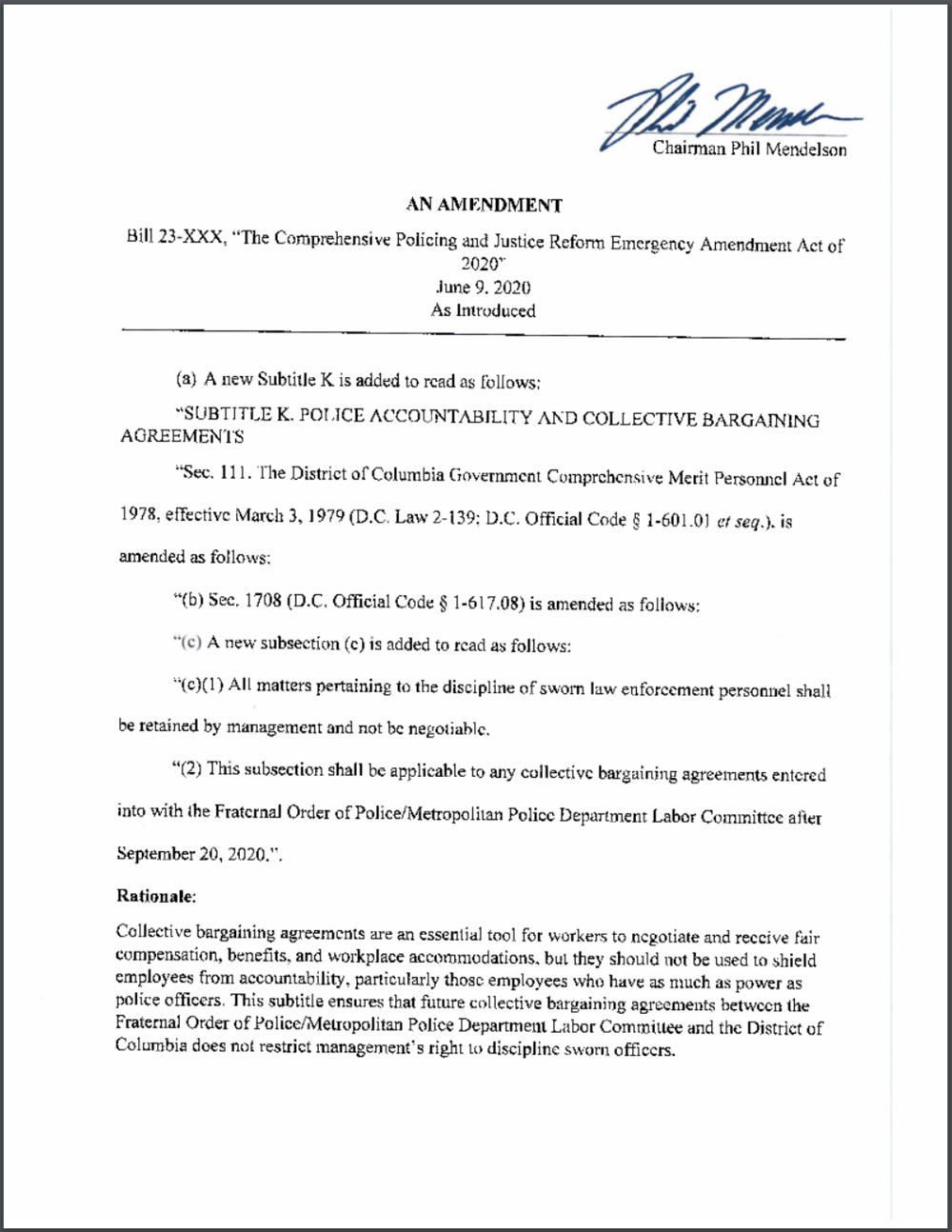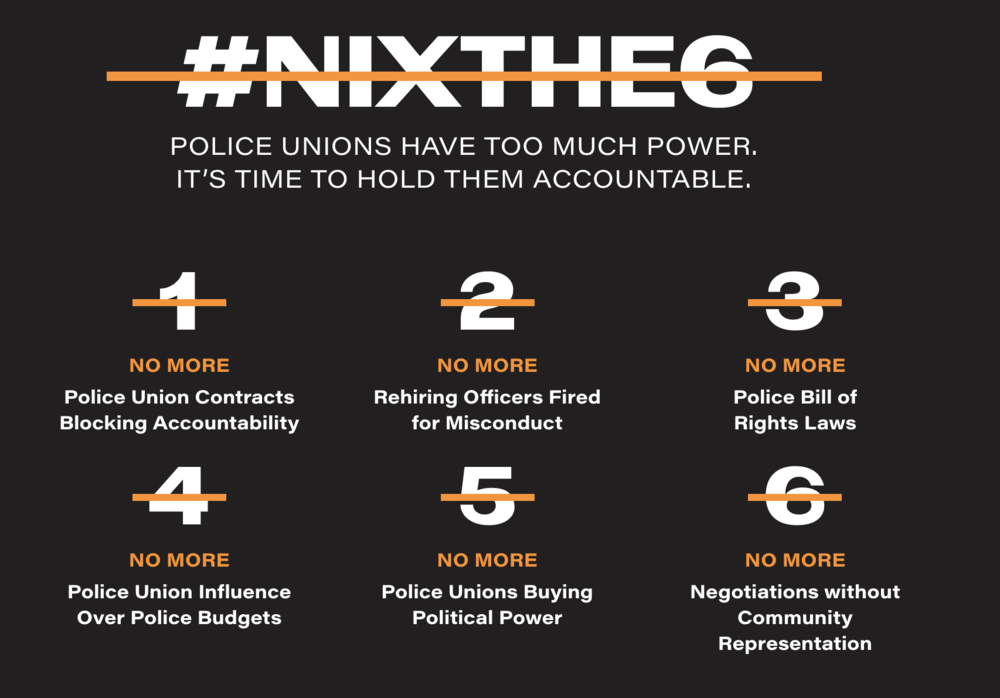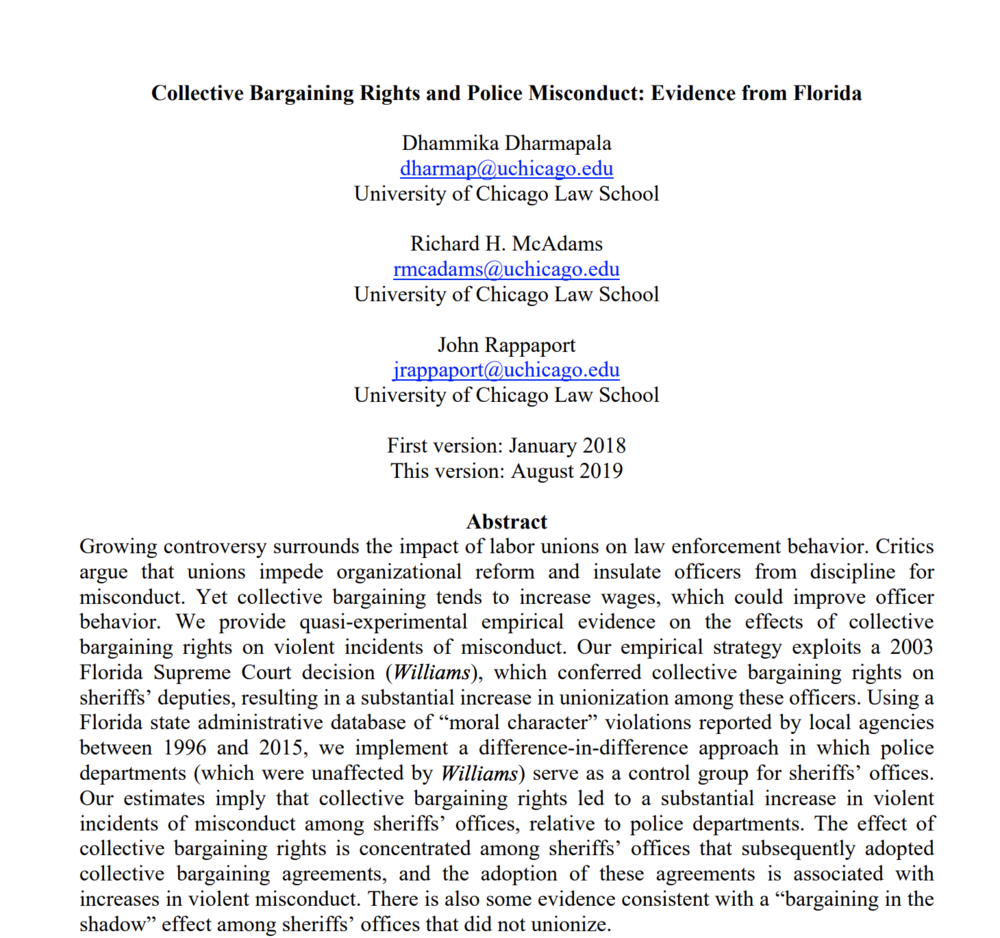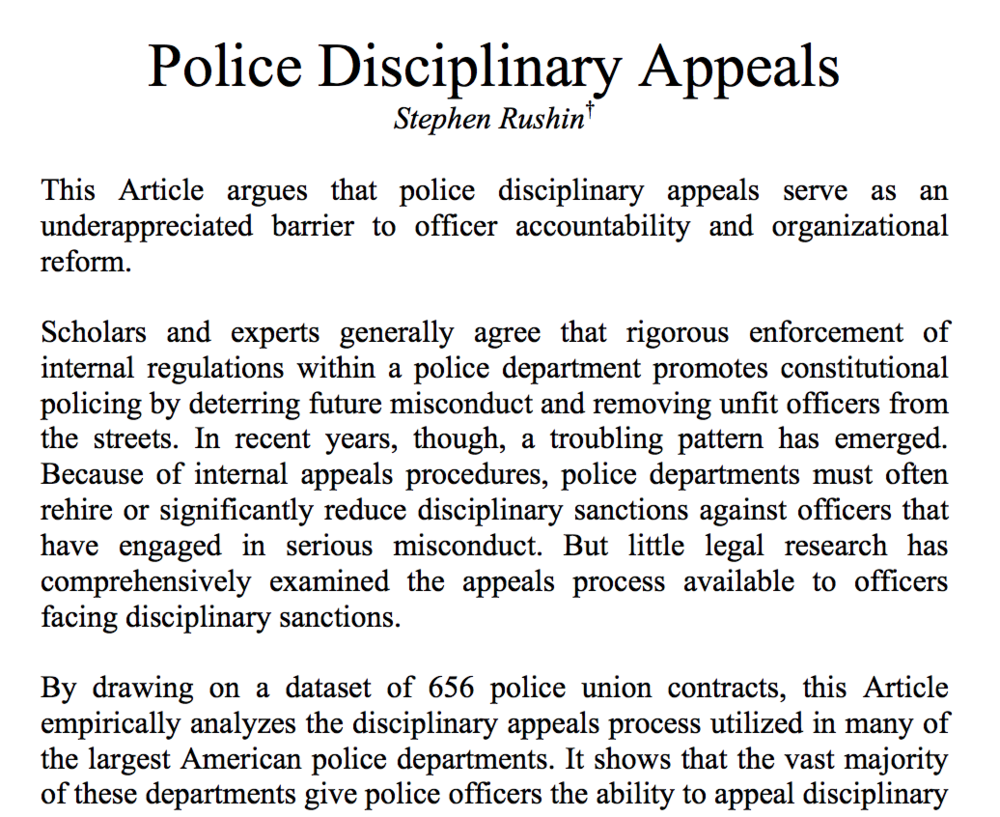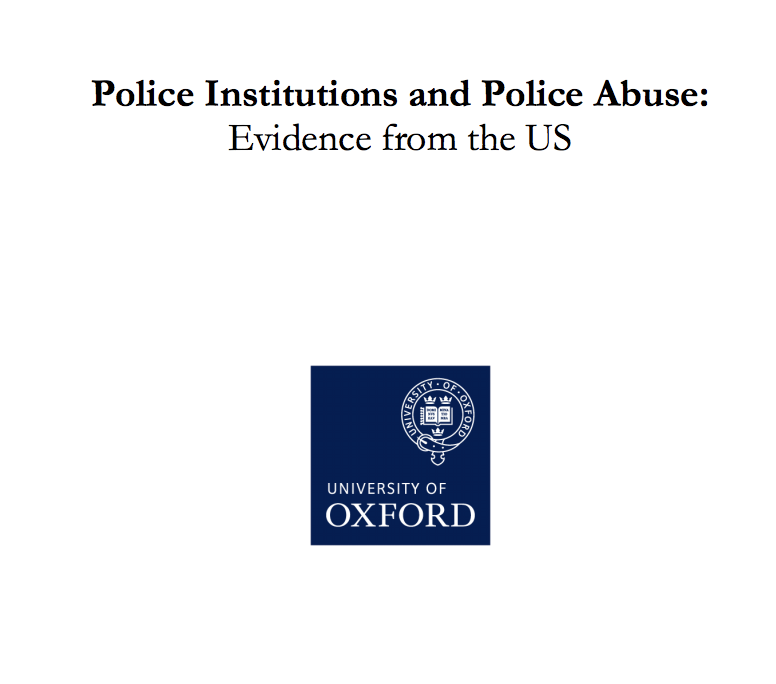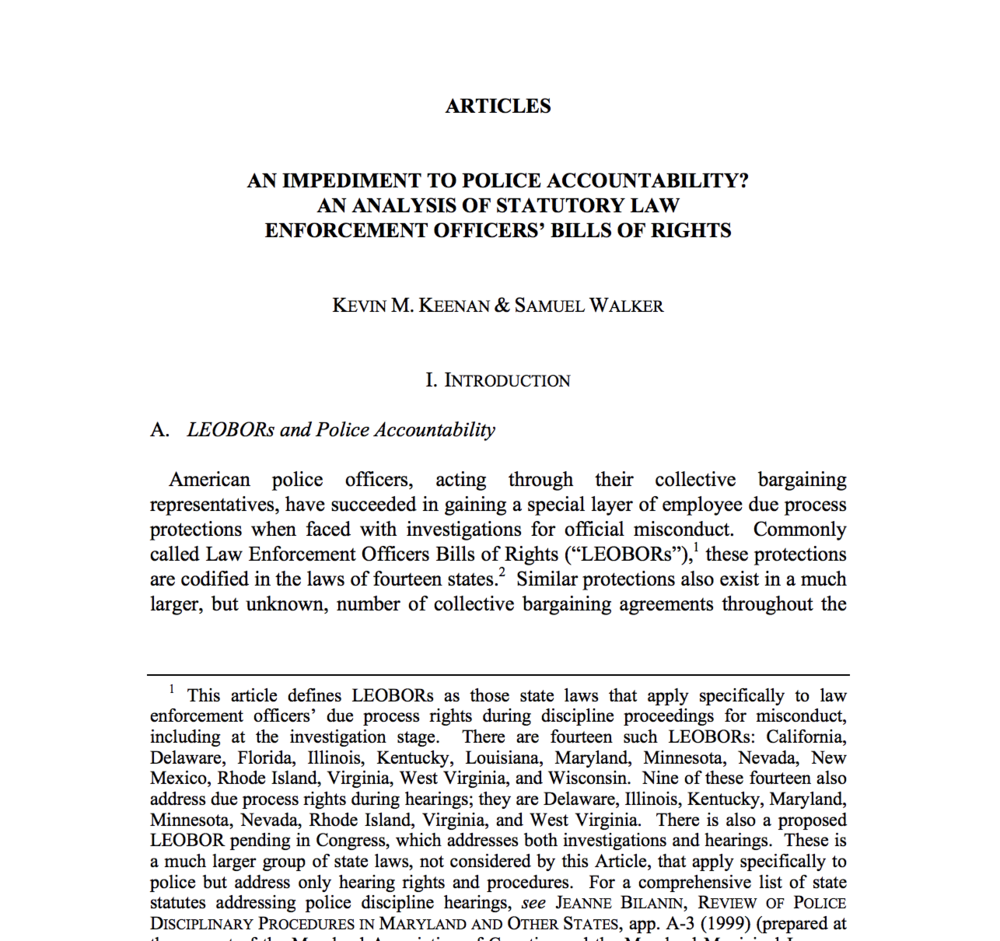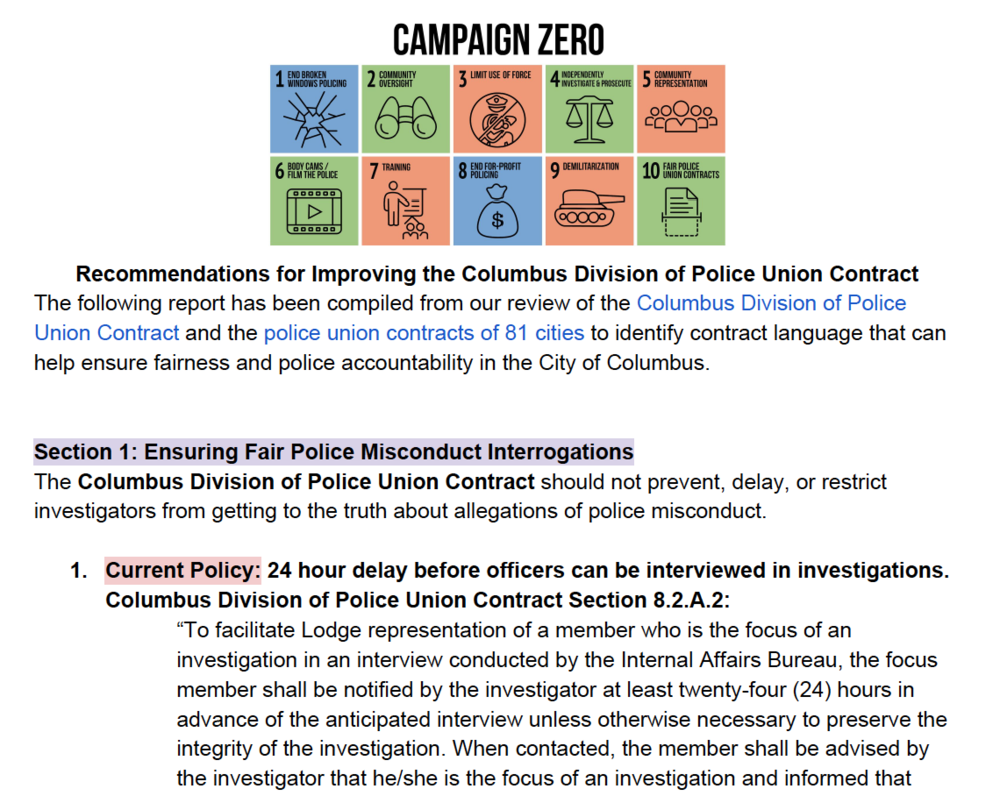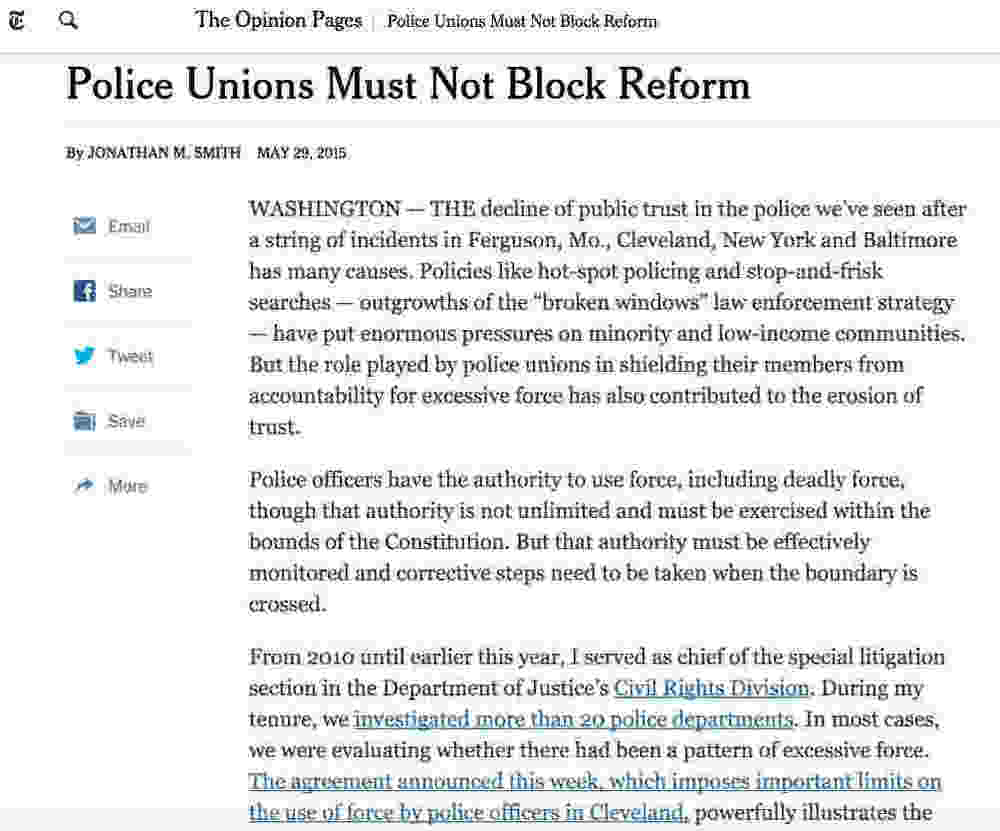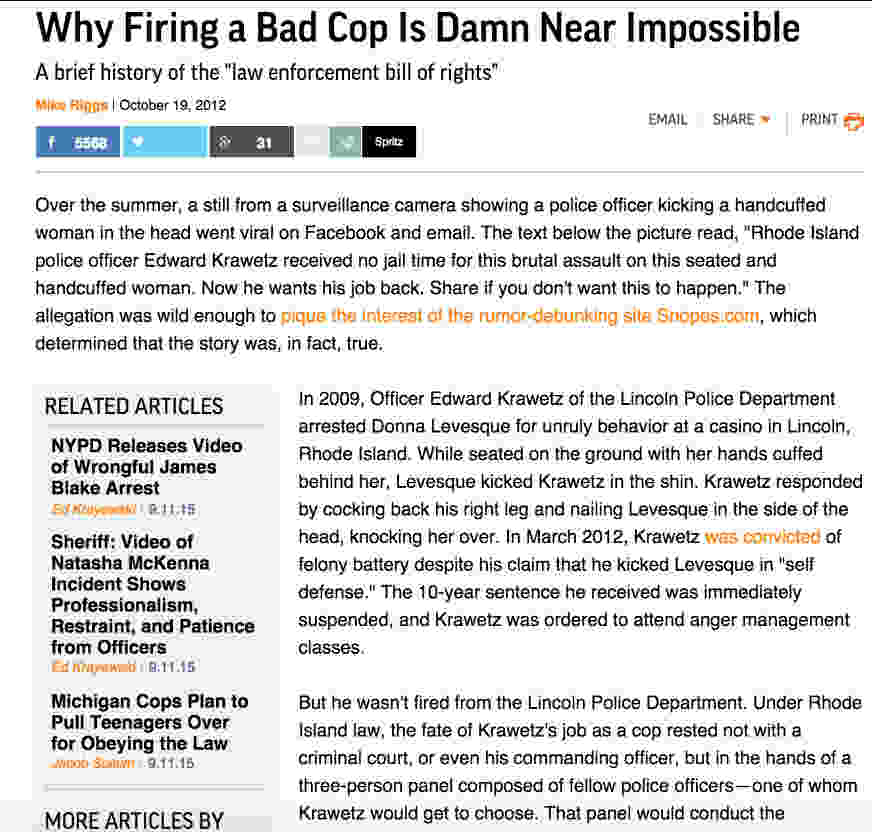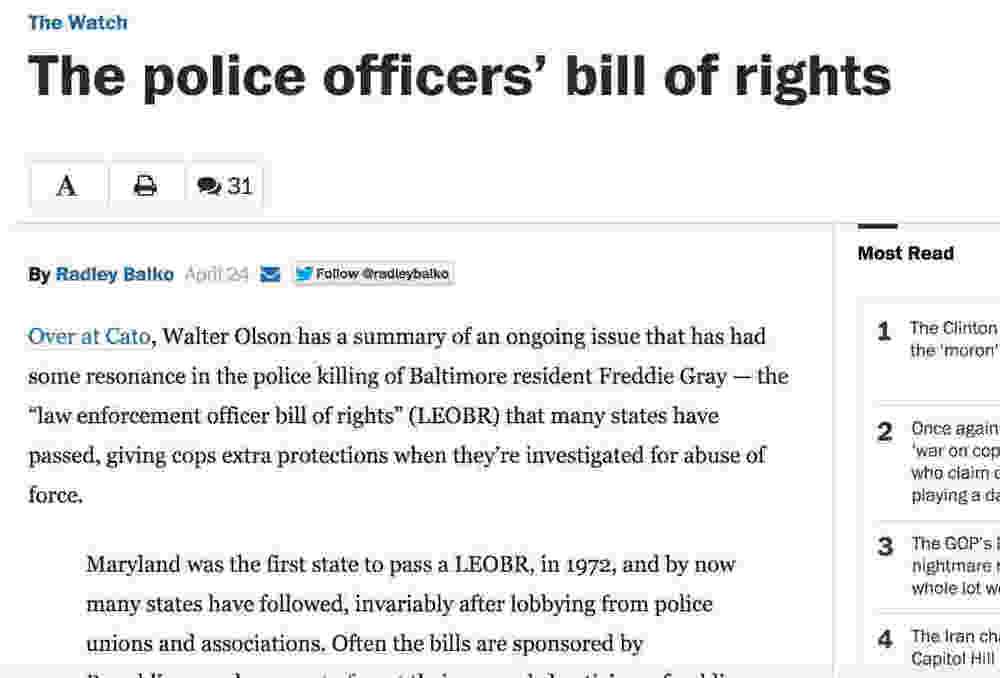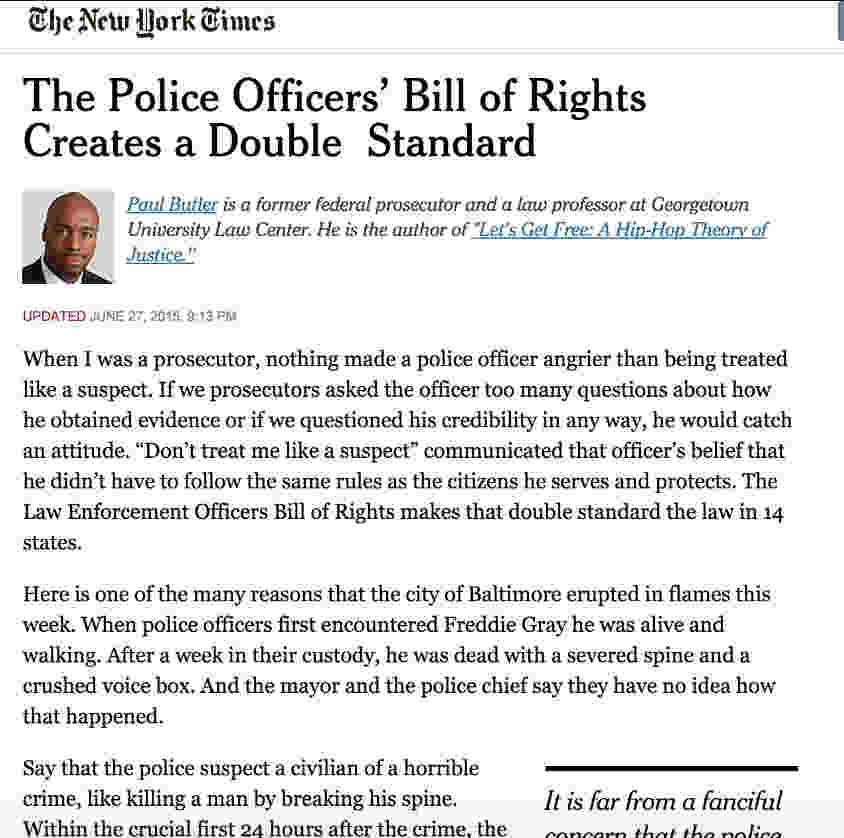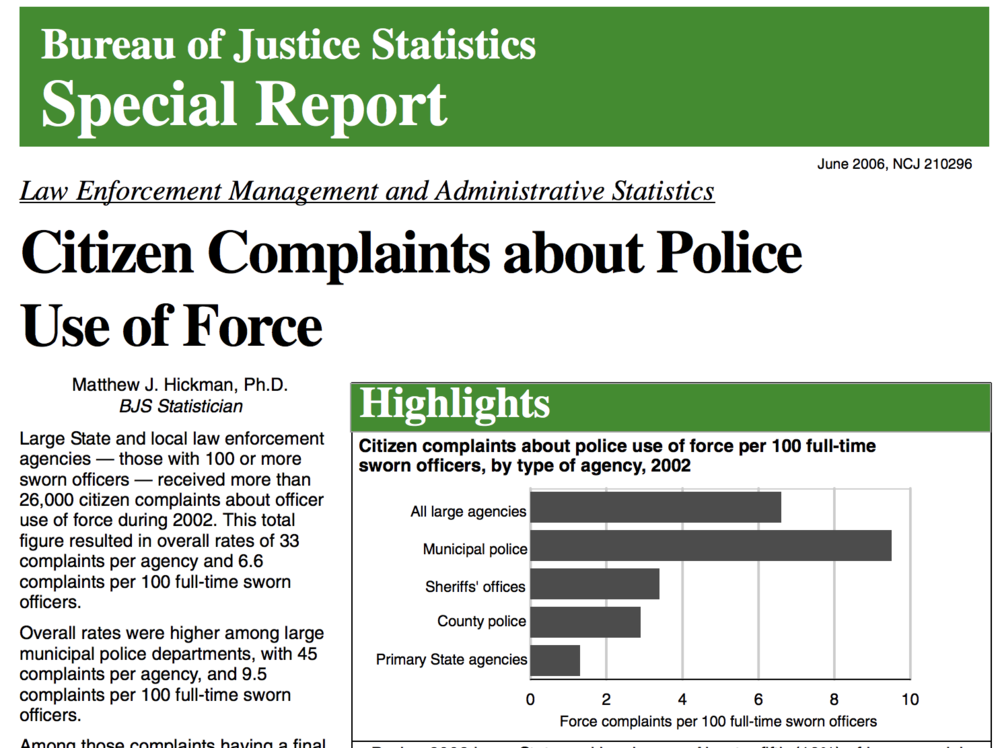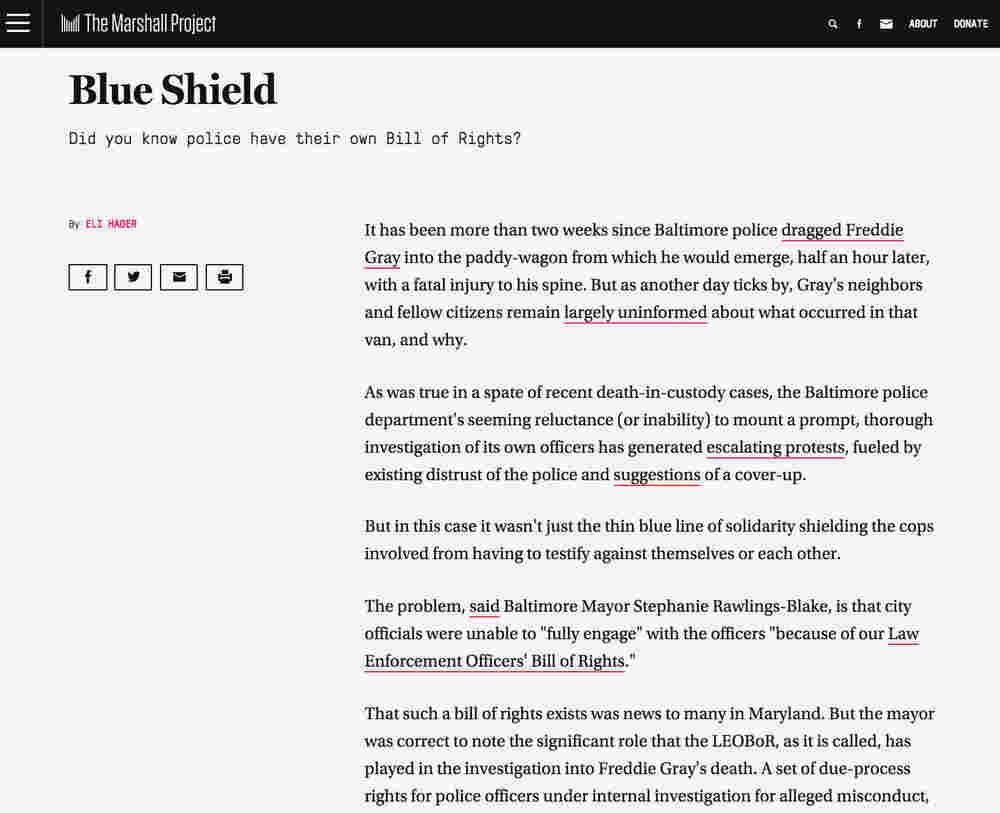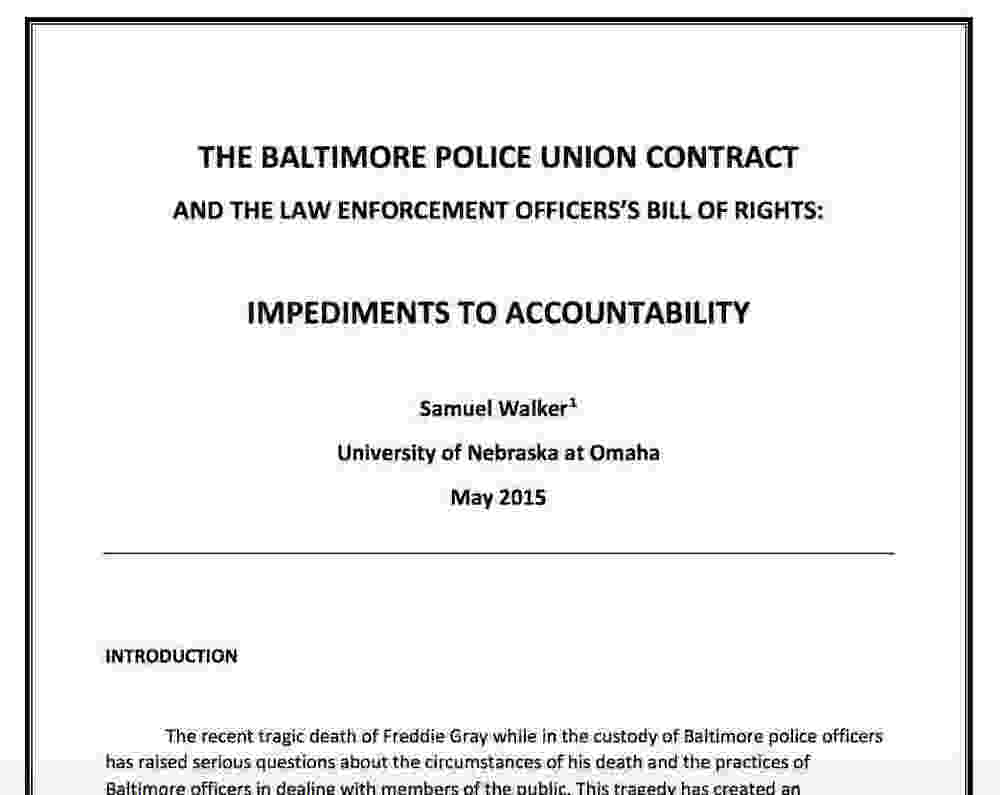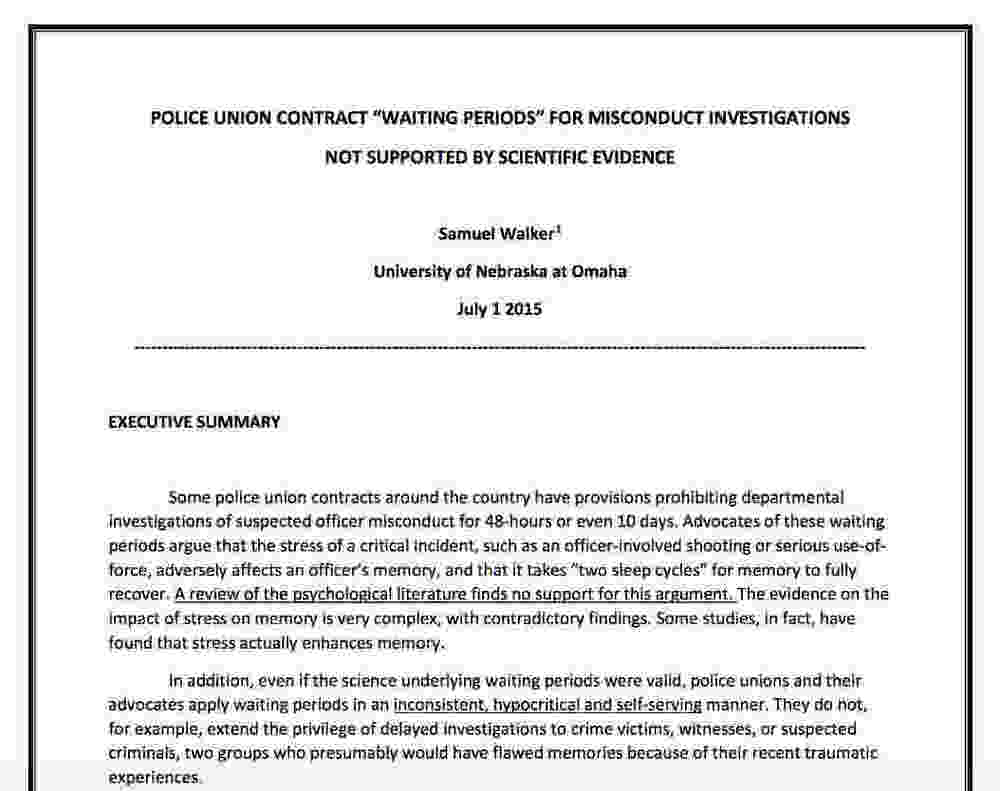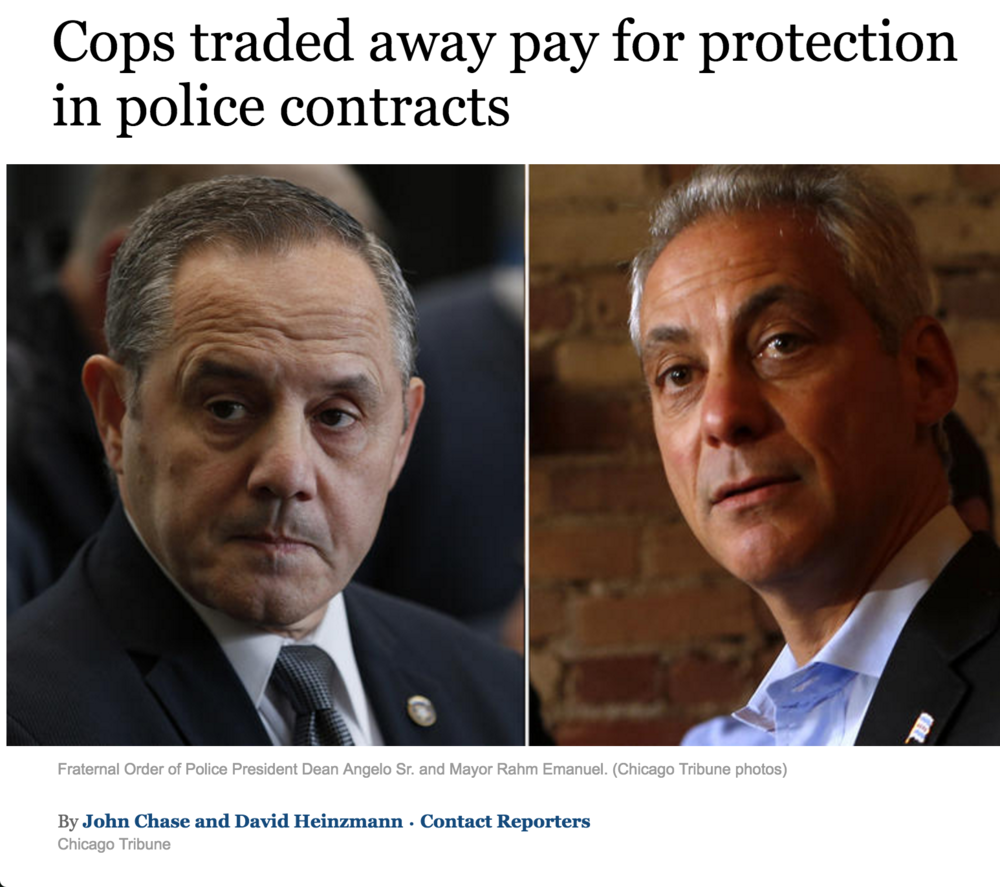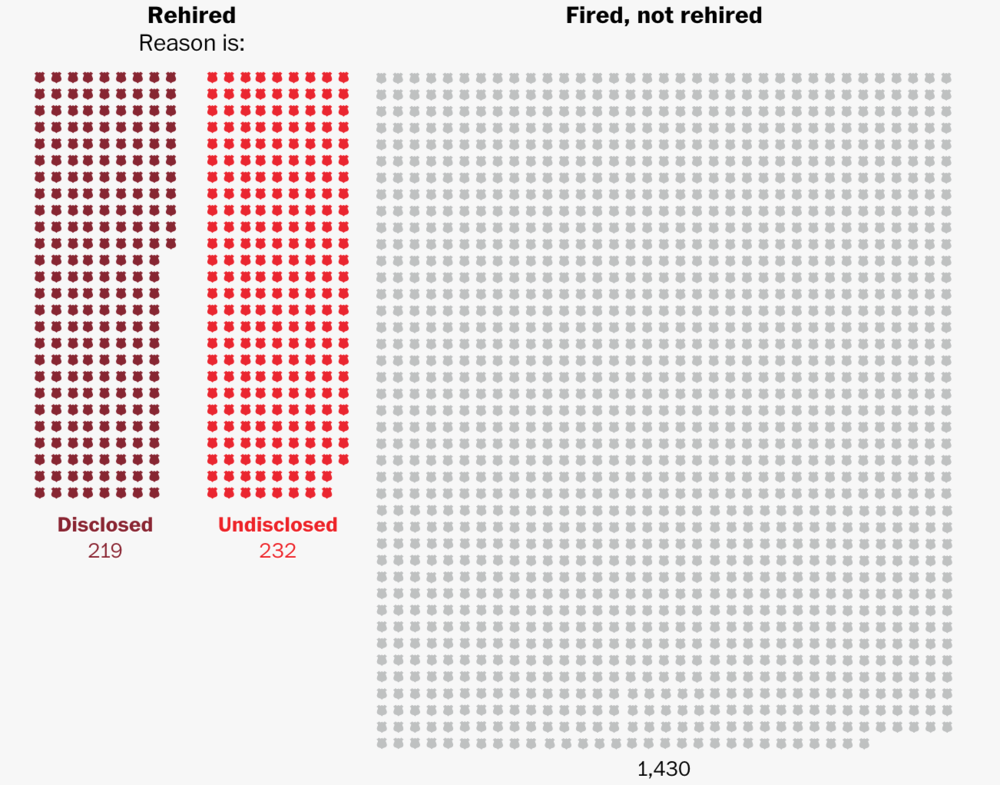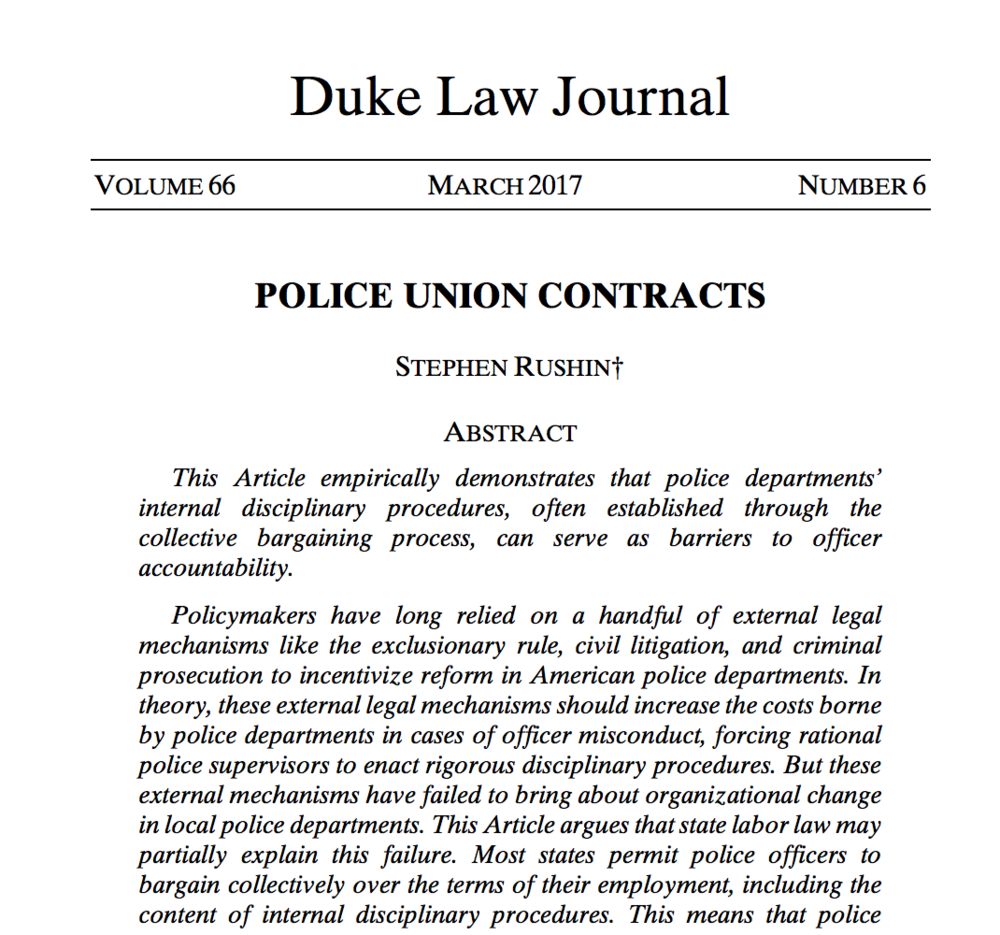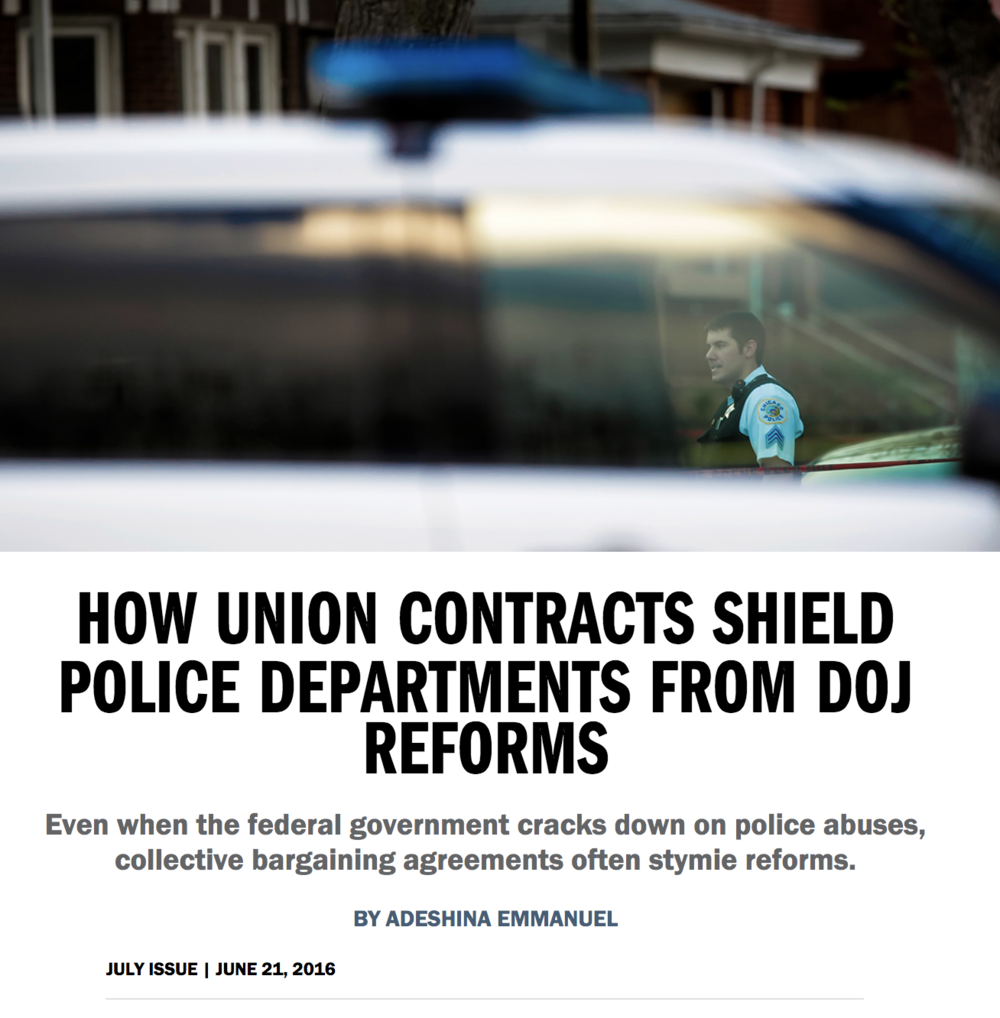Police unions have used their influence to establish unfair protections for police officers in their contracts with local, state and federal government and in statewide Law Enforcement Officers' Bills of Rights. These provisions create one set of rules for police and another for civilians, and make it difficult for Police Chiefs or civilian oversight structures to punish police officers who are unfit to serve. Learn more about how police union contracts help officers avoid accountability here.
Policy Solutions

Remove barriers to effective misconduct investigations and civilian oversight
Remove contract provisions, local policies, and provisions in state Law Enforcement Officers' Bills of Rights laws that:
-
allow officers to wait 48 hours or more before being interrogated after an incident
-
prevent investigators from pursuing other cases of misconduct revealed during an investigation
-
prevent an officer's name or picture from being released to the public
-
prohibit civilians from having the power to discipline, subpoena or interrogate police officers
-
state that the Police Chief has the sole authority to discipline police officers
-
enable officers to appeal a disciplinary decision to a hearing board of other police officers
-
enable officers to use the contract grievance process to have an outside arbitrator reverse disciplinary decisions and reinstate officers who have committed misconduct
-
prevent an officer from being investigated for an incident that happened 100 or more days prior
-
allow an officer to choose not to take a lie detector test without being punished, require the civilian who is accusing that officer of misconduct to pass a lie detector first, or prevent the officer's test results from being considered as evidence of misconduct

Keep officers' disciplinary history accessible to police departments and the public
Remove contract provisions, local and state policies, and provisions in state Law Enforcement Officers' Bills of Rights laws that allow police officers to:
-
expunge or destroy records of past misconduct (both sustained and unsustained) from their disciplinary file
-
prevent their disciplinary records from being released to the public via a Freedom of Information Act (FOIA) request

Ensure financial accountability for officers and police departments that kill or seriously injure civilians
Remove contract provisions, local policies, and provisions in state Law Enforcement Officers' Bills of Rights laws that:
-
require officers to be given paid administrative leave or paid desk-duty during an investigation following a police shooting or other use of deadly force
-
prevent officers from receiving unpaid suspensions as discipline for misconduct or allow officers to use vacation or discretionary time to pay themselves while on suspension
-
allow officers to receive paid leave or paid desk-duty after being charged with a felony offense
DC Council recently passed legislation that bans the inclusion of “all matters pertaining to the discipline of law enforcement officers” in their police union contract. This policy banning police union contracts from including language that impacts the investigation and discipline of law enforcement is a model that other cities and states should adopt. Police accountability should be non-negotiable.
Campaign Zero reviewed the police union contracts in nearly 600 U.S. cities. 84% of police union contracts imposed at least one barrier to holding police accountable. Learn more at Nixthe6.org.
Read the Research Below to Learn More About This Issue:

